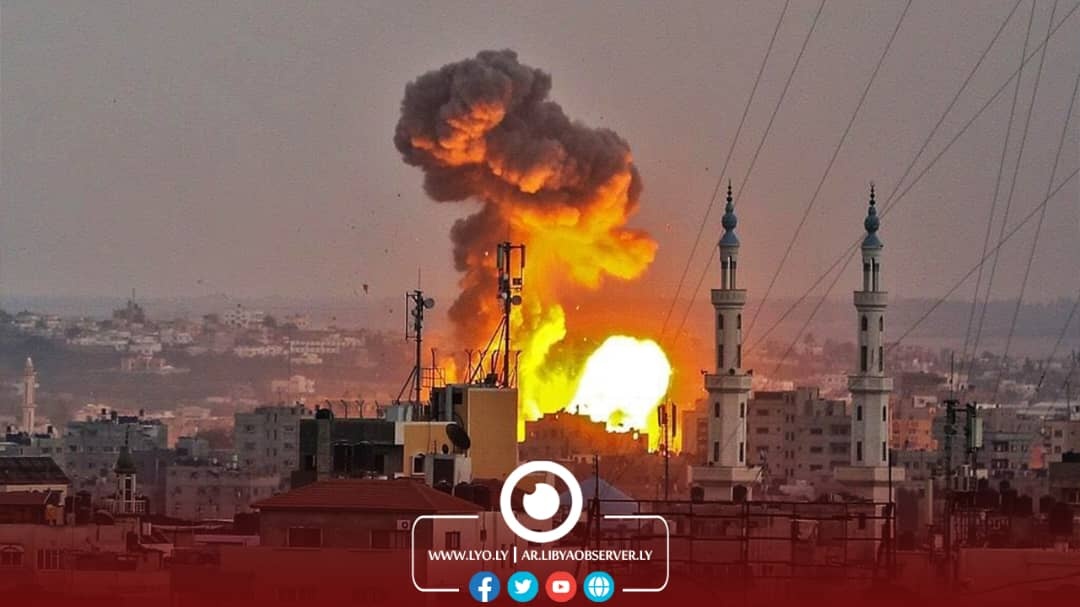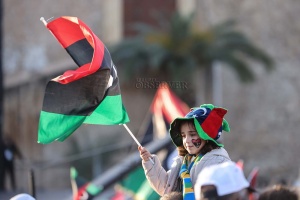By Abdullah Alkabir, Libyan political writer and commentator
Gaza reshapes the globe

Certainty and inevitability of the victory of the Palestinian resistance over the occupier is not a guesswork, a bet that has a share of chances of victory, or out of desire or wishes. Rather, it is a fact recorded by the experiences of the struggling peoples, who made sacrifices and presented their children on the altar of freedom, and history recorded this in the clearest way, on its pages and its most beautiful lines, its bravery, and heroism until it achieved glory and snatched its freedom and independence from the fangs and claws of the colonialists.
From Latin America in the Far West to Angola, Algeria, Libya, in Africa and Vietnam in the Far East, and other countries, peoples rose up, despite their poverty and weak capabilities, to confront the occupying armies, armed to the brim with soldiers, weapons, and alliances. They fought fierce and unproportional battles, and faced with their primitive weapons armor, tanks, and modern aircraft.
The sophistication of weapons, size of armies, and strength of alliances on the side of the occupier do not guarantee victory. There are other factors that are more effective in resolving the conflict in the interest of the resistance in the end. The occupier cannot bear a large number of victims, because the occupier has profit and loss account for their occupation. If the cost increases, the occupier packs its bags, gathers its forces, and leaves, as it is not willing to bear the blows of the resistance, which does not evaluate its struggle according to the criteria of profit and loss. Its goal is clear, and the path to it is clearer, realizing that it is a long river of blood, tears, and pain, and on its banks, the entire people stand supportive, and fully prepared to make every effort and sacrifice.
All colonized peoples paid the price scores of times to gain their freedom, with relentless resistance and unrelenting determination, despite all the violations committed by the occupier against them. They compensated for the difference in the balance of power with their enemy by adopting the method of guerrilla warfare, which proved effective in exhausting the enemy’s army, until it falls and announces surrender.
The resistance is usually poorly armed, and its enemy imposes a stifling siege on it, isolating it from its social stronghold, as the Italians did in Cyrenaica, by cramming the people into detention centers, hoping to cut off any supplies to the mujahideen, spreading spies and informants around them, and tightening the noose around them, in order to eliminate the resistance. But all of its measures are doomed to failure, and the resistance resorts to withdrawal and latency when the enemy begins to escalate by implementing exceptional measures and more violent attacks. Then it returns to taking the initiative to deliver a painful strike to the enemy in an unexpected place, as soon as the wave of escalation subsides.
Theorists describe this type of war as the dog-flea war, as the dog has a large area to defend against a very small, light, and fast enemy, which stings at any site in this large area, and when the dog’s claws reach and scratch the site, the flea will have left and back to base safely.
In this unproportional war on the level of force, the occupier only succeeds in killing huge numbers of the population. Whenever it suffers a painful sting, unleashes the whip of its vengeance on civilians, by arresting and killing them. Therefore, the colonized peoples are subjected to what resembles eradication. Algeria contributed more than a million and a half in the battle for liberation from French colonialism, and Libya lost half of its population to death and displacement in the war with the Italian colonialists. Some estimates suggest that in the battle to liberate Vietnam, approximately two million people were killed, while the Viet Cong resistance front lost about 85 thousand dead.
While nature is generous with mountains and desert with the Algerian resistance, and with dense forests with the Vietnamese resistance, resistance men resort to them after carrying out a commando operation, to prepare for another. However, the resistance in Gaza missed such natural cover, with the loss of extension in the land which is confined between the sea and the enemy, therefore The Palestinian resistance in Gaza resorted to digging tunnels and bunkers to hide its weapons and draw up confrontation plans, from which the resistance fighters would emerge to surprise the enemy and engage with them, or launch surprise attacks.
At the military field level, this round between the Palestinian resistance and the occupation appears different from previous confrontations. The resistance developed its weapons and strategies, and added many tactics to this type of war, to slaughter its enemy, while the occupation forces continued to fight with the same methods as traditional armies, advancing cautiously. On the ground, with air and sea cover, yet wary of mines, ambushes, and surprises at the hands of the resistance.
On the political level, the results were not limited to Palestine or the region but rather caused a major shock globally. There is no country that the fragments of war have not reached, in varying proportions. Rather, it forced the most powerful countries to mobilize their fleets, all their agencies, and the media. Perhaps what the American writer Robert Taber mentioned in his book (The War of the Oppressed), published in 1981, is something similar to a prophecy or early forecast of the outcomes of the popular liberation wars, this round of conflict in occupied Palestine has achieved, or almost achieved. “It is a confrontation between the haves and the have-nots, between the rich nations and the poor nations. It is reshaping the world we knew, and its outcome may determine the shape and essence of the expected future, not only in the current broad and existing theaters of operations, but everywhere as well.”
Disclaimer: The views and opinions expressed in this article are those of the writer, and do not necessarily reflect those of the Libya Observer



